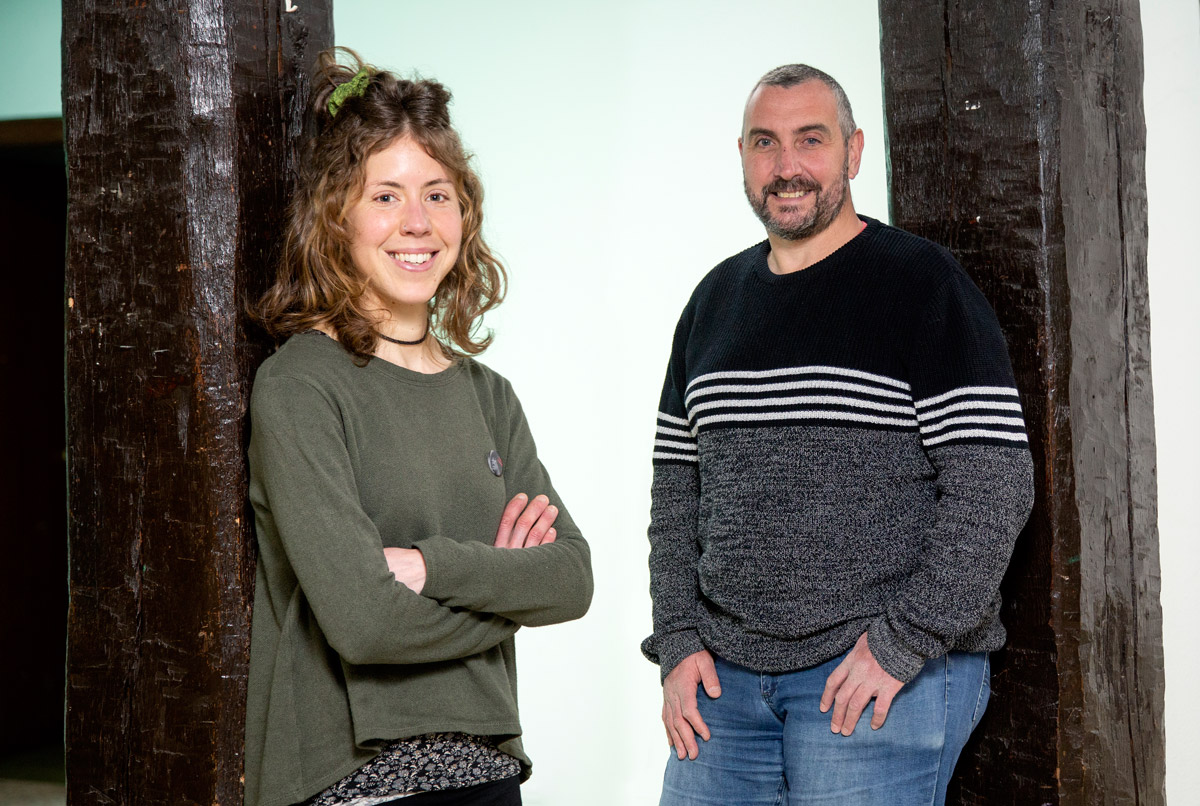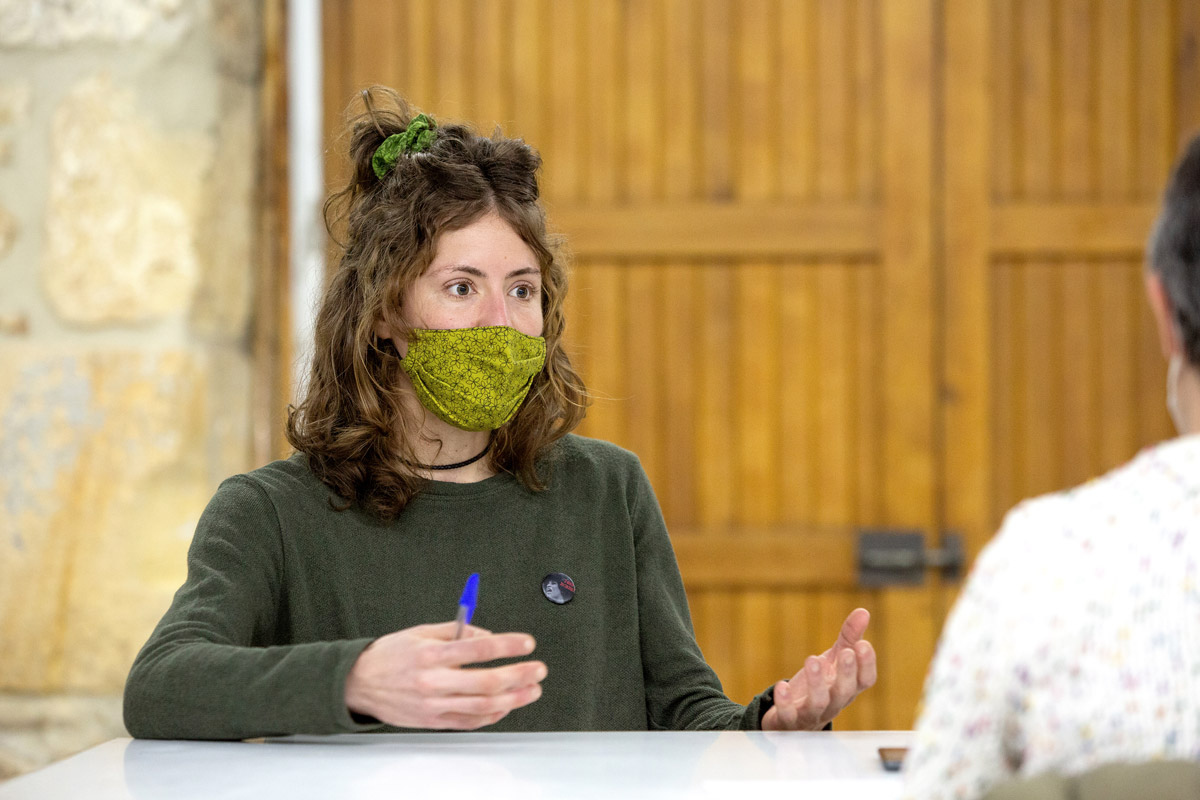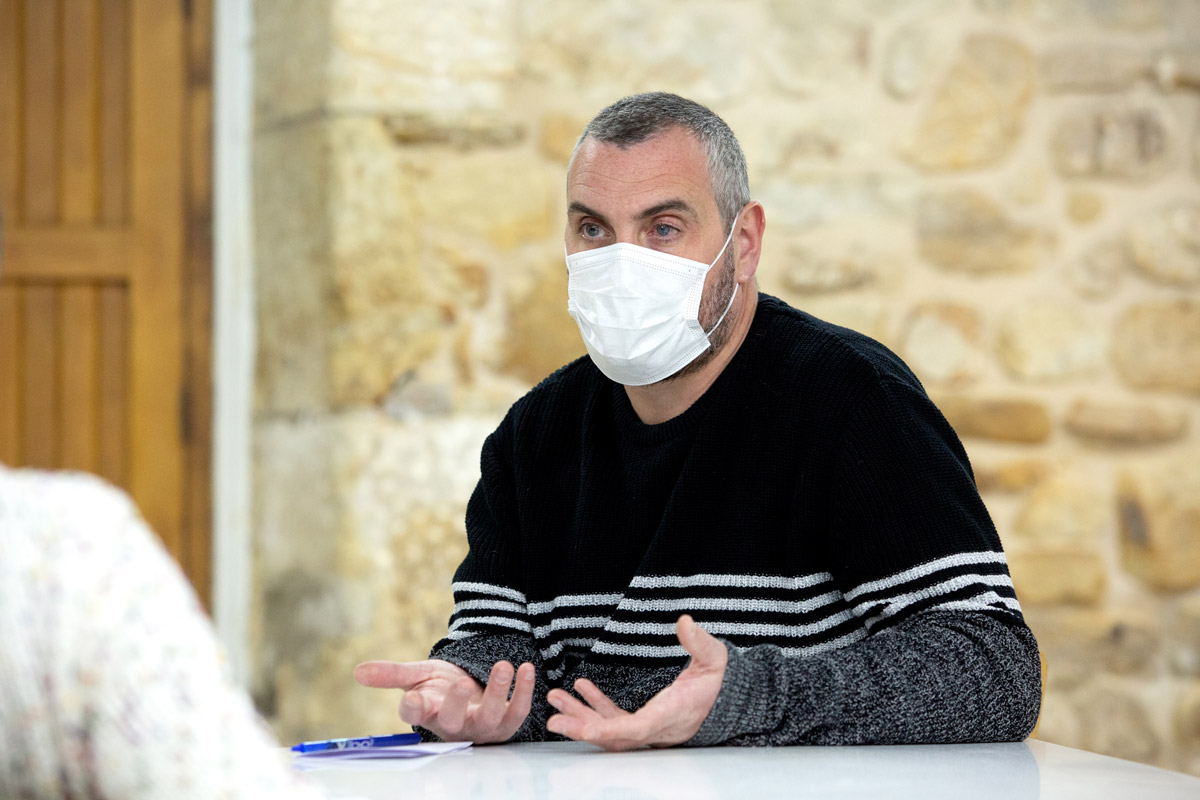"The feeling is that there are institutions that want to buy the silence of the Basque culture"
- In the Basque Country, Euskal Herria Euskaraz will advance whenever it is reformed. This has been emphasized in the recent internal reflection of the movement. Now they want to organise an EHE adapted to the new times. They will claim the need for independence as an instrument of Euskaldunization of the Basque Country. They propose a new model of the relationship between the institutions and the Basque Country, so that the latter does not function as a subcontractor. We interviewed members of the Haizea Ramirez de Alda and Urko Aierbe movement.

How is EHE?
Haizea Ramírez de Alda: In recent years it has been like the Basque industry, still or lozorrea. After the process of reform that we have carried out, it seems that the time has come to get back to the streets vigorously, we are enthusiastic. We are ready to continue working on the Euskaldunization of the Basque Country. We are excited to share with people everything that has come out in the adaptation process and to attract people to work with us.
They say that the Basque industry, language policies and the normalisation of the Basque country are in a state of impasse. You too?
Urko Aierbe: That's right. There are more factors, but we saw two big ones. On the one hand, the EHE is 40 years old and needed a comprehensive review of its nature, ideological foundation, functioning, dynamics, etc. The Ikusmira document is part of this reform. The founding document was presented in 1979 and we adapted it to the new times. It's been the work that EHE had to do looking inwards. On the other hand, there's an environment or an opportunity, what happened in the last decade. All Basque cultural activity has been in the lethargy, unable to adapt to the new times.
H. Ramírez de Alda: We saw that the situation reached a high point. Linguistic policies did not advance, without euskaldunifying many people in terms of knowledge, with the use chained, with immersion models... This has also influenced us in taking the leap.
Is the Ikusmira document a sign of a reformed EHE?
U. Aierbe: That is the will. We have wondered whether EHE has a role and an answer in the normalization of the Basque Country, whether it renews itself.
What human basis now has EHE? Militancy models have been modified. How do you organize yourself?
U. Aierbe: The models of militancy have been modified, the forms of politico-social participation of people have been modified. The ways of making contributions have changed and are going to change, more so in young people. We had to adapt to those changes. In any case, we believe that there are favourable conditions, that is, that although young people have new forms of participation, the starting fuel is that young people are vasophils. It's about fuel being well-organized and effective at delivering results.
H. Ramírez de Alda: The concept of community will be new. In addition to the organized members of EHE, we will give importance to the network that we can create with the Euskaltzales that join our bases.
U. Aierbe: The EHE had a classic organizational model, say, a national structure, by country, etc. Some things have to be maintained, but in these times the organisation and operation must be more flexible and efficient. We want to say to the community that we are going to propose different forms of participation. We want to offer other forms to the Vascophiles who want to contribute to the normalization of the Basque Country. Work will be done over the coming months to define these intentions.
On the other hand, we are going to strengthen the traditional groups of peoples. These groups, like the situation of Basque cultural activity in recent years, are repressed, but one of the main tasks to be carried out is its activation.

They have brought the need for independence to the forefront. What thoughts have you made?
H. Ramírez de Alda: We already had it in mind, we have now written it or we have expressly said it. It is clear from the French and Spanish States that it is not possible to achieve an Euskal Herria Euskaldun that really lives in Euskera. Independence is not an objective, but a necessary instrument for our goal to become a reality. Txillardegi said that if the Basque Country is a statue, it is saved, but without a certain state it is not.
U. Aierbe: Let me give you two examples. Recently, in the Spanish Congress, the Council and other groups defending the State's own languages presented a non-legislative proposal. One point called for an end to the imposition of Spanish, a point that was not accepted. Another example is the one that occurred in Lasarte-Oria. The City Council asked that the offer of leisure for young people be exclusively in Euskera, and the courts have said that it cannot be in Euskera.
H. Ramírez de Alda: It is clear to us that independence is not enough and not waiting for independence to be achieved. The process of sovereignty must be carried out in Euskera, it is important to begin to create the Euskal Herria Euskaldun that we have in mind since today.
Is the risk of being Irish not high?
U. Aierbe: That is why an explicit mention: independence is not an objective. Once sovereignty has been achieved, we will have to continue working towards the achievement of the Basque Basque Country and have constant attention and concern to continue living in Basque. Not only are the states of France and Spain, but in this globalized world the impulse of English presents us with new challenges as a linguistic community.
Is it the function of the cultural agents of the Basque Country to claim independence?
U. Aierbe: We have reflected and will share it in the coming months with the cultural agents of the Basque Country. To see what the proposal looks like, we are not going to move forward. However, Basque cultural activity is increasingly explaining the need for sovereignty. The Council itself has done so. In the dynamic Hamaika Gara of Šesku we are several agents of the Basque world and the shared concern is the need to do something. There is consensus that language policies have reached the peak and further steps have to be taken.
Urko Aierbe: "The Basque Country has the right to continue to criticize. At least EHE will continue to do so"
They talk about the states of Spain and France. The linguistic policies of the three administrations of the Basque Country also have an impact on linguistic normalisation. They can make language policies more daring. Are you going to take that into account?
U. Aierbe: They could do a lot more with their competencies. The example of Catalonia has been counted a thousand times. With similar competences, it has been very clear that the main language is Catalan in its territory. And they have taken courageous measures, or rather, more developed than daring, because it is not a matter of courage but of will. There they were very clear that the new generations had to know Catalan and generalized the model of immersion. Here after 40 years we have the teaching model system, A, B D, G, only in French... The result is that even today thousands of students finish their studies without sufficient knowledge of the Basque country. I've talked about teaching, but we could exercise in areas.
H. Ramírez de Alda: The public administration can do more and has a responsibility to respect the linguistic rights of the Basques. One of the tasks of EHE is to assert our rights. In addition, EHE must activate the Euskaldunes, help them to become aware and pressure public administrations to take courageous steps.
Disobedience and activism are the main activities in the Ikuspegi document. How are they going to disobey?
H. Ramírez de Alda: We will relate disobedience with the option of living in Basque. We have gone to a public place and have not been attended in Basque; the action of disobedience would be to keep ours. A thousand such attitudes can be adopted in our daily lives.
U. Aierbe: In our reflection process we have observed the existence of a serenity, which has softened the old active, demanding and vindictive vasquity for various reasons and it is essential to recover it.
That is why we call on the Vascophiles and the Basques to re-elect to live in their own language, a conscious and vindictive choice. Without mystifying the above, before there was a higher level of demand and now in those situations referred to by Haizea, if they do not speak to us in Basque we change language immediately. We have to recover that passion, it is one of the challenges of this new EHE.

Can youth be one of the examples?
U. Aierbe: This initiative was exemplary and we were glad that young people were protagonists. We need more.
What other types of disobedience actions will the EHE perform? Will the methods you have historically used recover or be different?
U. Aierbe: It's not a break, we've kept things that were useful in everyday life. We still have to shape it, bring it into concrete dynamics and projects. We want to gain local spaces in order to live in Euskera and encourage the citizens to opt for Euskera in the winning areas. For example, we need Basque doctors and we will have to claim that in many places they are not. But we also want to encourage dynamics in choosing Euskaldunes doctors wherever they are. We demand responsibility from the administration, but we want to convey to the public the message of harnessing the progress that has been made in many areas.
H. Ramírez de Alda: We will address the two lines that we already bring: on the one hand, to demand and denounce, and on the other, to make Euskal Herria Euskaldun in a constructive way. Denounce yes, but also build.
How do you imagine the relationship between Basque cultural activity and institutions?
U. Aierbe: It is clear that cooperation between the popular movement and the institutions is essential for the normalization of the Basque Country. We want a model of governance to be articulated that is different from what has happened in the last decade without entering. Some of the basic criteria that we raised in our predisposition four years ago. The fundamental criterion for good cooperation is that the institutions implement the appropriate language policies. In other words, we must work together to implement the appropriate language policies. Secondly, we must recognise each other in this new model of partnership. From the point of view of popular movements there is institutional recognition, but from the institutional point of view there is no recognition or recognition of legitimacy. Thirdly, we must reflect together and take decisions, be it the analysis of the situation, the measures taken, the projects carried out, the financing ... In the current model, institutions reflect and decide, and the popular movement is at best subcontracted. We are offered money to develop different projects, but to do what they decide.
Does it comply or should it be something beyond the principles of the model you propose?
U. Aierbe: Yes, it has to go further. If the Basque Country is an improvement over the previous model, certainly, but it is not enough to delve further into the recognition and recognition of all Basque cultural activity by the institutions.
Does this relationship not run the risk of subjecting it to the institutions and of calming the criticism of language policies?
U. Aierbe: That's the risk. At other times there was a clear confrontation, a grudge, there was no room to speak. Now, at the ICSC, the institutions have started to work in another direction and we value it positively, but it is not enough. One of the dangers is the emergence of addictions and above all economic ones. The model we propose has not been taken by the institutions and approached by the Basque country, hiring for this purpose the Basque cultural activity.
H. Ramírez de Alda: One of the characteristics that defines EHE is institutional autonomy. We attach great importance to pressure work. This does not exclude the possibility of collaboration, but not in the formula of ‘donating and making money’, but as a comparable subject.
U. Aierbe: The feeling with some institutions is that they want to buy the silence of the Basque Country with money, that is, “do not criticise me” because of the dependence on subsidies. The Basque Country has the right to continue to criticise. At least EHE will certainly continue to do so, but we would like it to go further in another partnership.
The Council of Euskalgintza is warning of the linguistic emergency we have been experiencing in recent weeks. Several years have passed since the beginning of describing the situation of the process of revitalization of the Basque country at the crossing, at the roundabout, at... [+]
"We want to learn Basque! Respect linguistic rights!" Under the motto, convened by the unions LAB, STEILAS and ELA, and with the support of Ernai NUP, Euskal Herrian Euskaraz, HE Gurasoak, Observatory of Linguistic Rights, Ikama, Euskera Group of the UPNA and Sortzen have held a... [+]
For those of us who have for years been involved in the Euskal Herrian Euskaraz (EHE) association, the evolution of the EHE in recent years has been sad: lack of capacity for ideological struggle, general demobilization, long and absurd reflection processes, blatant capacity to... [+]























